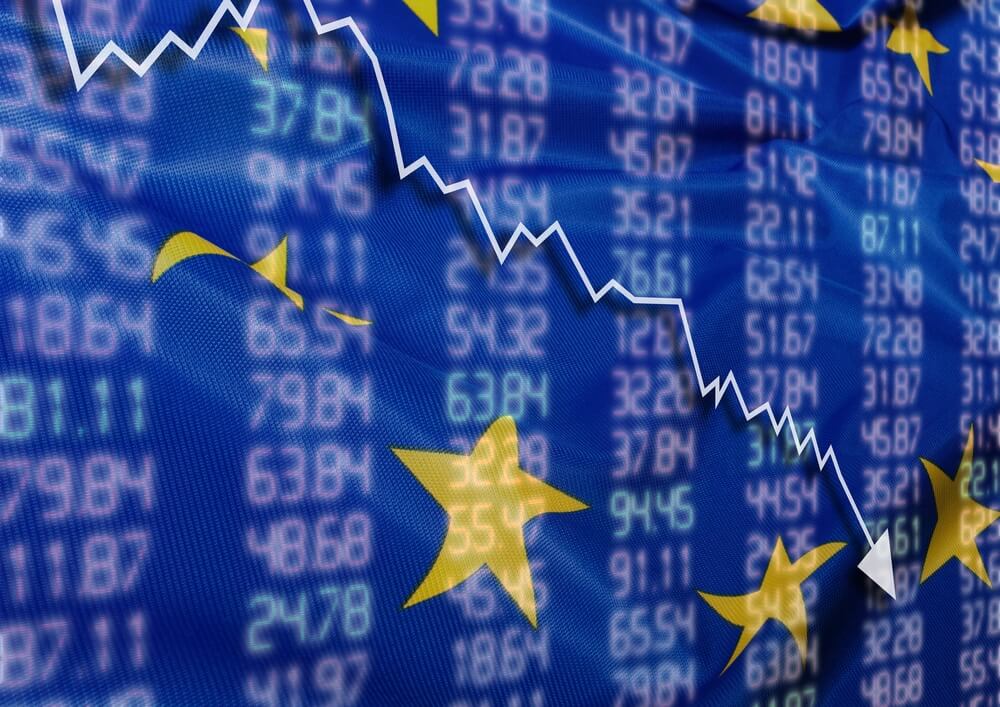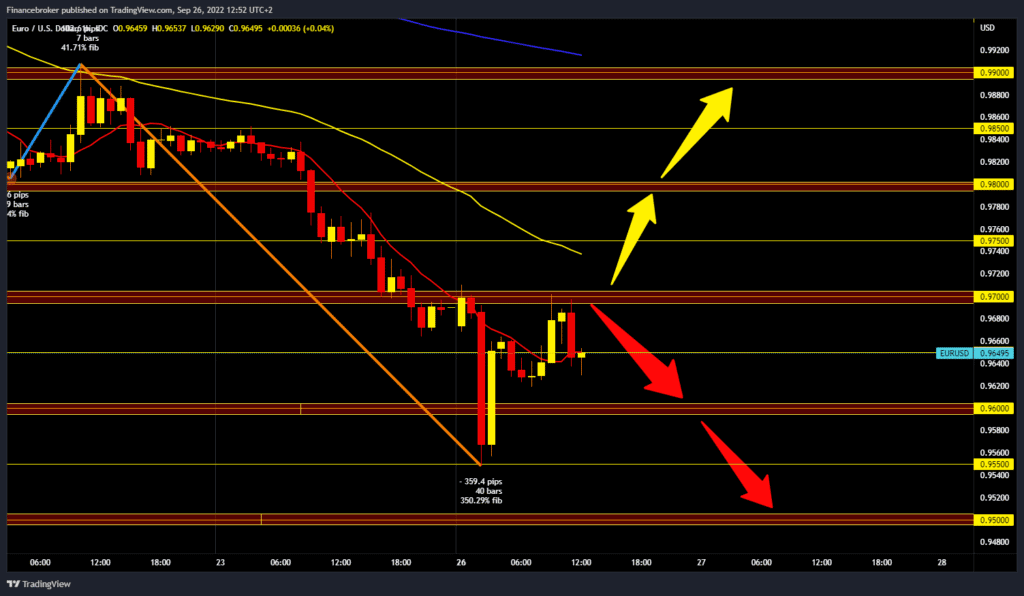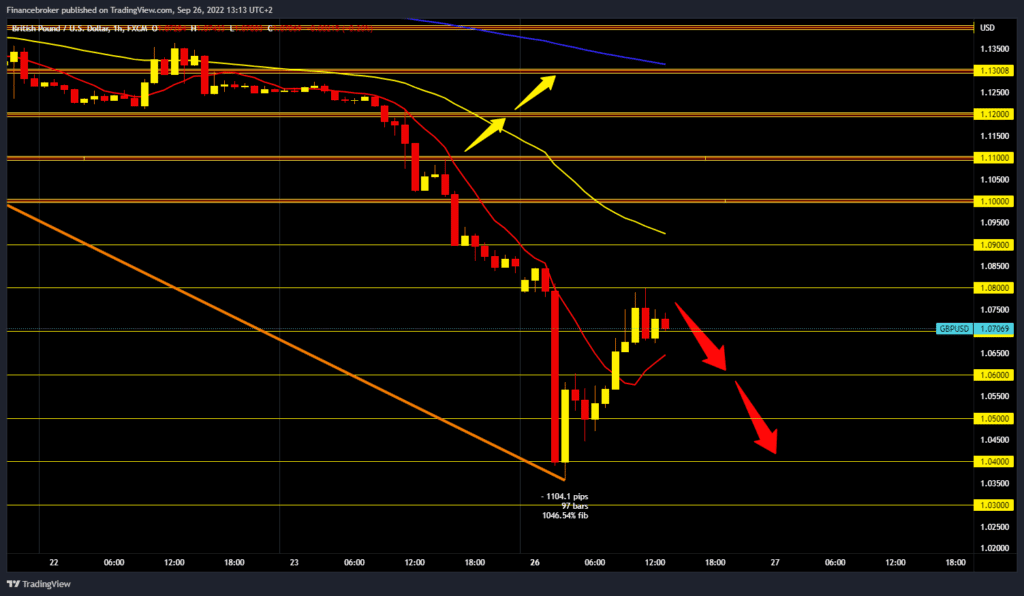
EURUSD and GBPUSD: Another Fall
- Another fall in the euro during the Asian trading session.
- During the Asian trading session, the pound fell to a new historical low at the 1.03600 level.
- In September, German business confidence fell to its lowest level in more than two years, signaling that the economy is slipping into recession, IFO research showed on Monday.
EURUSD chart analysis
Another fall in the euro during the Asian trading session. This morning’s minimum was at the 0.95500 level, after which the euro quickly moved above the 0.96500 level. The euro continues to recover, but only up to the 0.97000 level. We now have resistance at that level and see a new pullback. We are currently looking to see if the euro manages to hold above the 0.96500 level. We have to hover above the 0.97000 level for a bullish option and try to hold there. After that, we need a bullish impulse to take us up to the 0.97500 level.
Additional resistance at that point is in the MA50 moving average. A break above the euro could move us to the 0.98000 level. We need a negative consolidation and a drop below the 0.96000 level for a bearish option. Then we would be in a position to retest the 0.95500 level. The potential lower target is at the 0.95000 level.
GBPUSD chart analysis
During the Asian trading session, the pound fell to a new historical low at the 1.03600 level. After that, we see an escape of the pound to a safer zone up to the 1.07000 level. Current resistance is at the 1.08000 level, where we now see a new hold. For a bullish option, we need further positive consolidation and a move above the 1.08000 level. Then we would return to this morning’s starting position. Potential higher targets are 1.09000 and 1.10000 levels. We need a negative consolidation and pullback below the 1.07000 level for a bearish option. After that, we could expect a continuation of the fall to support at the 1.06000 level. And if we don’t find support there either, the pair could continue and test this morning’s low again at the 1.03600 level.
Market Overview
In September, German business confidence fell to its lowest level in more than two years, signaling that the economy is slipping into recession, IFO research showed on Monday. The business confidence index fell sharply to 84.3 in September from 88.6 in August, the lowest since May 2020. Companies rated their current operations worse, and pessimism about the coming months increased. Business confidence worsened in all four sectors of the economy.




